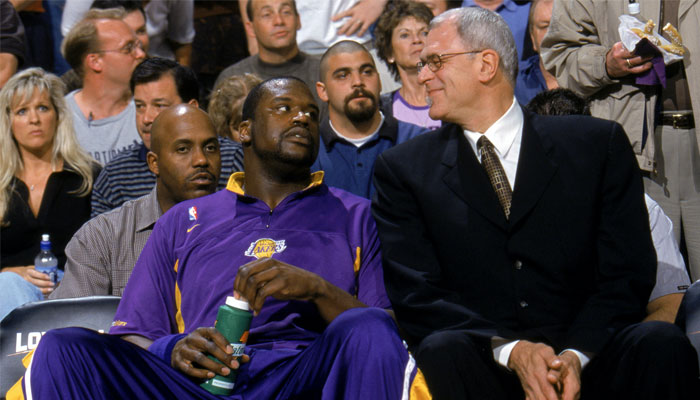According to data from the European Agency for Safety and Health at Work (EU_OSHA) 3.2 million new cases of cancer are diagnosed in Europe every year, and about half of these are in people of working age. After the diagnosis of the disease, the life project of the person and their environment is temporarily paralyzed, so it is important to ensure that once the disease is over, they can recover their work, their income and the structures of their normal life.
In fact, as the report indicates How to return to work after cancer, edited by the Ministry of Labor, Migration and Social Security in collaboration with UGT and the State Foundation for the Prevention of Occupational Risks, “work can promote social contacts of people who have survived cancer and normalize their lives.”
But, How to face this return to working life after overcoming the disease? The Spanish Association Against Cancer (AECC) points out that changes in this area will be less significant depending on the general condition of the patient and whether the effects of the treatments are temporary or permanent. “In most cases, once the patient has recovered from the treatment process, they can go back to their usual work without major problems. However, in some cases it is possible that as a result of the disease the patient cannot perform his previous job or cannot return to work ”, they explain from the Association.
From the AECC they consider that returning to work after finishing the treatments and being discharged by the doctor can help the patient to “Acquire new motivations in your day to day”. However, they insist that if the work involves requirements that the patient cannot perform after the treatments, “the possibility of going through the medical court should be assessed so that it considers the possibility of incapacity for the usual job.”
In this regard, the Spanish Group of Cancer Patients (GEPAC), he points out in his Report / Survey on cancer in Spain 2019, that the limitations to return to work reincorporation appear above all because of the physical sequelae. However, this same report indicates that there are differences between the roles that participate in it. While the patients themselves point out that the limitations lie in the impossibility of doing the same job, health professionals and family members indicate that the emotional sequelae they also count as a major limitation.
Another of the significant data to highlight from this survey is that it indicates that 70% of the patients affirm that there is no understanding by companies when a person returns to work.
Will I be able to go back to work?
The AECC confirms that one of the most frequently asked questions by people who have overcome the disease is whether they will be able to return to work. “After receiving the medical discharge, time will have passed since you stopped working and in a similar way after returning from a vacation, It is difficult to resume the rhythm and work activity. Doubts and fears are normal”. Therefore, they recommend that the reincorporation is gradual and without forcing the organism too much. “We must not forget to follow the doctor’s recommendations in relation to the diagnosis and the side effects of the treatments, as well as the advice of the physiotherapist to prevent the appearance of lymphedema (in the case of breast cancer)”, they indicate.
In the same sense, they position themselves from the American Society of Clinical Oncology (ASCO): “Starting to work again requires additional planning to make sure you’re ready for the transition and feel comfortable with it. ” For ASCO there is three basic factors when it comes to dealing with the right time for this return to work: the long-term side effects of treatment, the physical demands or stress of work, and the need for follow-up care.
The Company recommends having a meeting with the Human Resources department or job supervisor to discuss the appropriate time for this reinstatement and certain details that could facilitate this return in a progressive way: how to work at part time, Search for that the schedule is flexible to be able to go to medical appointments / check-ups or share the work on big projects until you are ready to work full time.

On physical adaptation to work, ASCO notes that while returning to work has many benefits and increases self-confidence, “as a cancer survivor, you may experience fatigue, pain, cognitive problems and other side effects of treatment. A few small changes can help you adjust to these new limitations when you’re at work: take small breaks To maintain energy during the workday, use lists and alarms to remind you of important meetings or tasks and discuss concerns with your boss”.
Social adaptation to the job
On the other hand, experts claim that social interactions in the workplace can fill an important void for cancer survivors who stopped working for treatment. “But, upon your return to work, some co-workers may not respond well at first. They may feel confused about why you left or be concerned about how your return will affect their jobs. Giving a simple and positive explanation will help you reconnect and make your coworkers feel more comfortable as well, ”says ASCO.
In this sense, it is essential that this social adaptation is also made progressively and that it is the recovered person who mark the times and decide what you want to tell about the illness you have just overcome: “Sometimes coworkers may ask questions or show solidarity in order to be supportive, but this can make you feel uncomfortable. For example, they may want to celebrate your return to work. If this happens, it is okay to have these feelings. Tell your coworkers that you are not ready to answer those questions or receive that kind of support at this time. “
– .

